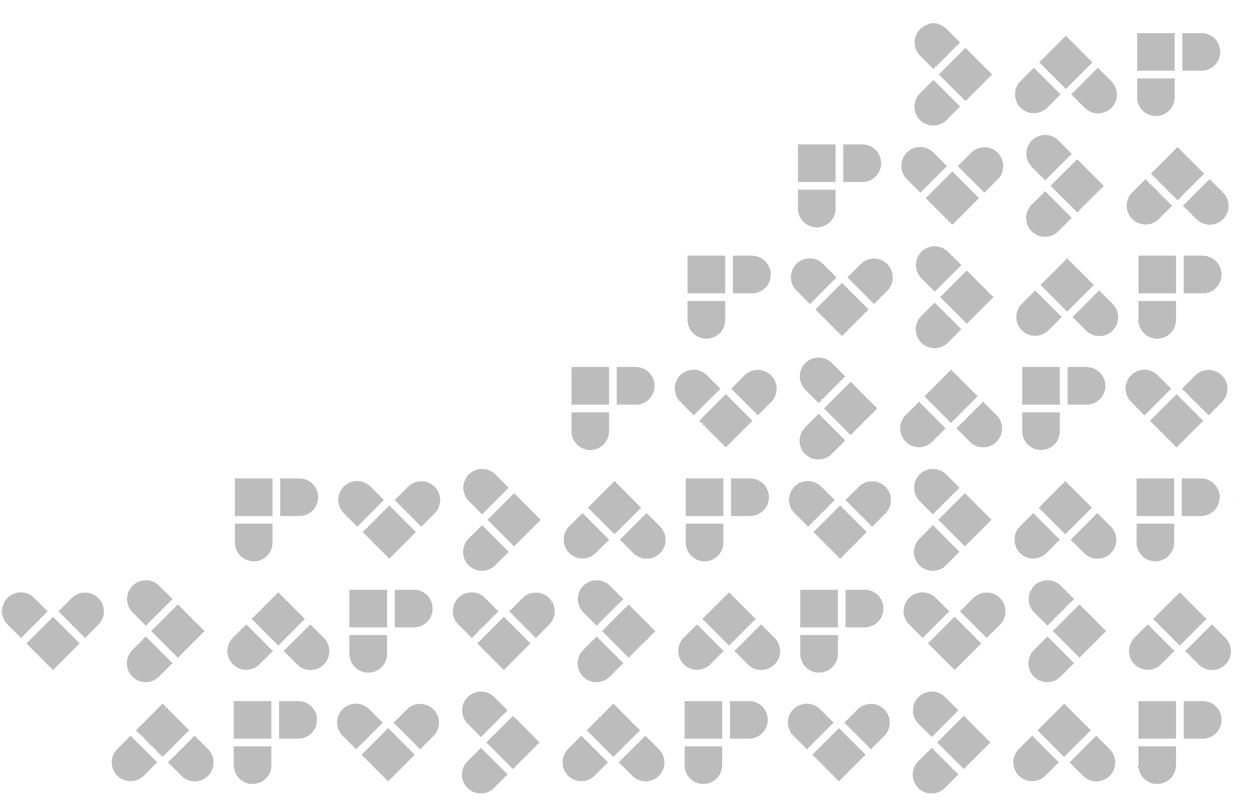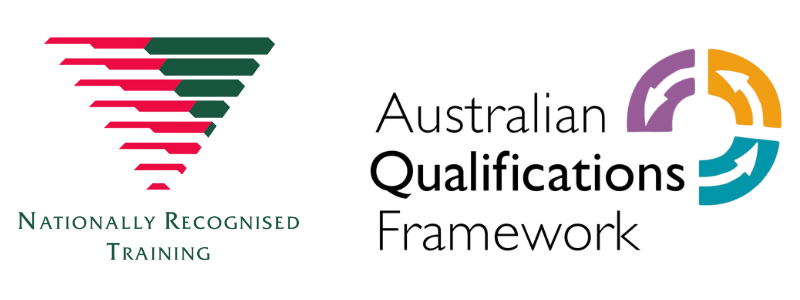Certificate III in Individual Support (Ageing)



Course Overview
The CHC33021 - Certificate III in Individual Support (Ageing) is a Nationally Recognised qualification designed to help you build the core skills needed to provide compassionate and effective care to older people in residential, home, or community settings.
If you're interested in becoming an aged care worker, residential care assistant, or home care support worker, this course prepares you to deliver person-centred support with professionalism and empathy. You'll gain practical experience in assisting with daily activities, promoting independence and dignity, and supporting the health and well-being of older individuals.
What You’ll Learn
This nationally recognised qualification prepares you to provide respectful, high-quality care to older Australians—at home, in the community, or residential settings. With a strong focus on practical, person-centred support, you'll learn to:
Deliver tailored care to support the independence and dignity of older clients – essential for meeting the needs of an ageing population
Assist with daily living activities, mobility and personal care – ensuring your clients feel safe, comfortable and supported
Build trusted relationships through effective communication – a key part of delivering compassionate care and emotional support
Recognise and respond to age-related conditions and changing health needs – helping you act quickly and appropriately in real care settings
Apply safe work practices and infection control procedures – protecting the wellbeing of both clients and care workers
Support emotional wellbeing and social inclusion – helping reduce loneliness and enhance quality of life
Work legally, ethically, and with cultural sensitivity – ensuring your care meets professional standards and reflects the values of inclusive support
With strong job growth across the aged care sector, you’ll graduate with practical experience, sought-after skills, and the confidence to begin a meaningful and in-demand career.
Career Outcomes
Secure Your Future in Aged Care
A career in aged care means making a real difference in the lives of others while enjoying meaningful work and competitive pay. With the 2025 Aged Care Award changes, your qualifications will open doors to higher roles and better pay. Now is the time to start building your future.
Read More About What This Means for You
Introducing the Upskilled Health and Community Services Job Portal
Dive into a world of career opportunities in healthcare, community support, and aged care with Upskilled's dedicated platform. Connect directly with leading employers who value your skills and passion for making a difference. Our streamlined platform lets you personalise your job search, explore targeted courses to boost your career readiness, and find flexible employment options that fit your lifestyle. Join the Upskilled Health and Community Services Job Portal today to start shaping a brighter future.
Possible Careers
Students who successfully complete this qualification may be able to pursue the following career outcomes.
Course Modules
To satisfy the requirements of this qualification, you'll need to complete the following units of competency.
This unit describes the skills and knowledge required to work respectfully with people from diverse social and cultural groups and situations, including Aboriginal and/or Torres Strait Islander people. This unit applies to all workers. The skills in this unit must be applied in accordance with Commonwealth and State/Territory legislation, Australian/New Zealand standards and industry codes of practice.
This unit describes the skills and knowledge required to communicate effectively with clients, colleagues, management and other industry providers. This unit applies to a range of health and community service contexts where workers may communicate face-to-face, in writing or using digital media and work with limited responsibility under direct or indirect supervision.
This unit describes the skills and knowledge required to identify and work within the legal and ethical frameworks that apply to an individual job role. This unit applies to community services and health workers who play a proactive role in identifying and meeting their legal and ethical responsibilities. The skills in this unit must be applied in accordance with Commonwealth and State/Territory legislation, Australian/New Zealand standards and industry codes of practice.
This unit describes the skills and knowledge required for a worker to participate in safe work practices to ensure their own health and safety, and that of others in work environments that involve caring directly for clients. It has a focus on maintaining safety of the worker, the people being supported and other community members. This unit applies to all workers who require knowledge of workplace health and safety (WHS) to carry out their own work, in both centre-based and home-based service provision.
This unit describes the performance outcomes, skills and knowledge required to work with basic information about healthy body systems and the impacts of ageing and disability. It includes recognising and reporting any changes in healthy bodies involving people who are ageing or living with disability. Any identified issues of concern to be reported to the supervisor or professional health staff. This unit applies to workers across a range of community services contexts. The skills in this unit must be applied in accordance with Commonwealth and State/Territory legislation, Australian standards and industry codes of practice. No occupational licensing, certification or specific legislative requirements apply to this unit at the time of publication.
This unit describes the performance outcomes, skills and knowledge required to identify signs of abuse, including suspected abuse or allegations of abuse, take appropriate action according to role and responsibilities and minimise the risk of abuse to a person. This unit applies to workers in a range of community services contexts. Work may be carried out under direct, indirect or remote supervision. The skills in this unit must be applied in accordance with Commonwealth and State/Territory legislation, Australian standards and industry codes of practice. No occupational licensing, certification or specific legislative requirements apply to this unit at the time of publication.
This unit describes the skills and knowledge required to establish relationships, clarify needs, and then work collaboratively with people who are living with mental health issues. This unit applies to support workers in contexts outside the mental health sector, but who come into contact with people with mental health issues. The services and support provided are not mental health specific.
This unit describes the performance outcomes, skills and knowledge required to work effectively in an aged care work context. The unit covers meeting job requirements, complying with organisational requirements and working in an aged care sector context. This unit applies to individuals who work with older people in a range of community services and health contexts. Work performed requires some discretion and judgement and is carried out under regular direct, indirect or remote supervision. The skills in this unit must be applied in accordance with Commonwealth and State/Territory legislation, Australian standards and industry codes of practice. No occupational licensing, certification or specific legislative requirements apply to this unit at the time of publication.
This unit describes the performance outcomes, skills and knowledge required to provide care for people with life-limiting illness and those within the normal ageing process using a palliative approach, as well as end-of-life care. This unit applies to workers in a residential or community context. Work performed requires some discretion and judgement and is carried out under regular direct, indirect or remote supervision. The skills in this unit must be applied in accordance with Commonwealth and State/Territory legislation, Australian standards and industry codes of practice. No occupational licensing, certification or specific legislative requirements apply to this unit at the time of publication.
This unit describes the performance outcomes, skills and knowledge required to work positively with the carer and family of people using a service based on an understanding of their support needs. This unit applies to workers across a range of community services contexts. Work may be carried out under direct, indirect or remote supervision. The skills in this unit must be applied in accordance with Commonwealth and State/Territory legislation, Australian standards and industry codes of practice. No occupational licensing, certification or specific legislative requirements apply to this unit at the time of publication.
This unit describes the performance outcomes, skills and knowledge required to organise, provide and monitor personal support services for a person within the limits established by an individualised plan. The individualised plan refers to the support or service provision plan developed for the person accessing the service and may have different names in different organisations. This unit applies to workers who provide care or support under direct, indirect or remote supervision. Work is carried out in a manner which supports independence as well as the physical and emotional wellbeing of the person receiving support. The skills in this unit must be applied in accordance with Commonwealth and State/Territory legislation, Australian standards and industry codes of practice. No occupational licensing, certification or specific legislative requirements apply to this unit at the time of publication.
This unit describes the performance outcomes, skills and knowledge required to provide person-centred care and support to people living with dementia. It involves following an established individualised plan. This unit applies to workers in a residential or community context, including family homes. Work performed requires some discretion and judgement and may be carried out under direct, indirect or remote supervision. The skills in this unit must be applied in accordance with Commonwealth and State/Territory legislation, Australian standards and industry codes of practice. No occupational licensing, certification or specific legislative requirements apply to this unit at the time of publication.
This unit describes the performance outcomes, skills and knowledge required to apply basic infection prevention and control principles in work settings including implementing standard and transmission-based precautions and responding to risks. This unit applies to individuals working in a range of industry and work setting contexts. The skills in this unit must be applied in accordance with Commonwealth and State or Territory legislation, Australian standards and industry codes of practice. No occupational licensing, certification or specific legislative requirements apply to this unit at the time of publication.
This unit describes the performance outcomes, skills and knowledge required to facilitate the empowerment of people receiving support, and to deliver rights-based services using a person-centred approach. It should be carried out in conjunction with individualised plans. This unit applies to workers in varied care and support contexts. The skills in this unit must be applied in accordance with Commonwealth and State/Territory legislation, Australian standards and industry codes of practice. No occupational licensing, certification or specific legislative requirements apply to this unit at the time of publication.
This unit describes the skills and knowledge required to provide individualised services in ways that support independence, as well as physical and emotional wellbeing. This unit applies to workers in a range of community services contexts who provide frontline support services within the context of an established individualised plan. The skills in this unit must be applied in accordance with Commonwealth and State/Territory legislation, Australian/New Zealand standards and industry codes of practice. No occupational licensing, certification or specific legislative requirements apply to this unit at the time of publication.
Frequently Asked Questions
Aged carers, also known as aged care workers, provide assistance and support to elderly individuals who may need help with daily tasks such as personal care, mobility, meal preparation, medication management, and companionship.
The earnings of an aged care carer in Australia can vary depending on factors such as experience, location, and employer. On average, aged care carers can earn between $20 to $30 per hour in Australia.
To start a career in aged care, you can begin by obtaining relevant qualifications such as a Certificate III in Individual Support (Aged Care) or a similar certification. You may also consider gaining experience through volunteering or entry-level positions in aged care facilities.
While it's possible to work in aged care without a certificate, having relevant qualifications such as a Certificate III in Individual Support (Aged Care) is highly recommended by employers and may increase job opportunities and earning potential.
The Certificate III in Individual Support (Ageing) is typically completed in 12 months, but the duration can vary depending on your study mode and personal pace. At Upskilled, the course is delivered online and self-paced, giving you the flexibility to balance your studies with work and other commitments.
To study aged care in Australia, you can enrol in accredited courses offered by various Registered Training Organisations (RTOs) like Upskilled or vocational training institutions. These courses typically include classroom-based learning, online learning, as well as practical training in aged care facilities.
A support worker in aged care assists elderly individuals with various tasks such as personal care, household chores, mobility assistance, emotional support, and social activities, with the goal of enhancing their quality of life and promoting independence.
A senior carer typically has more experience and may have additional responsibilities such as supervising other care staff, coordinating care plans, and liaising with healthcare professionals, whereas a support worker primarily focuses on providing direct care and support to elderly individuals.
Support workers in aged care should possess a range of skills including empathy, communication, patience, flexibility, physical stamina, problem-solving abilities, and the ability to work effectively as part of a team. Additionally, having basic medical knowledge and an understanding of aged care principles is beneficial.
Work placements are undertaken at a nominated host organisation approved by Upskilled. Specific requirements exist for this course. For details, refer to the Work Placement section on the course page or contact us for more information.
Payment Options
All amounts are in AUD (RRP includes surcharge fees). Speak to our friendly Education Consultants at 1300 009 024 to learn about flexible payment plans.
*Terms & Conditions Apply. Government Funding may be available in some states. Please contact our education consultants to learn more. You can also check the Government Funding Section in FAQs.
Government funding
At both a state and federal level, government commitment to upskilling the Australian workforce has resulted in a comprehensive framework of funding schemes and incentive opportunities. As a result, many Upskilled participants are provided incentives by the Government to undertake training and/or find that their courses are heavily subsidised.
Government funding options for:
Certificate III in Individual Support (Ageing)
Major schemes include:
An Upskilled education consultant will contact you within 48 hours
Industry Outlook
Discover why Community Services is a vital and rewarding field, making a meaningful difference in people's lives.
Annual Employment Growth
30,200
Median Age
41
Education pathways
If you successfully complete the CHC33021 - Certificate III in Individual Support (Ageing), you may be able to pursue the following related qualifications:
Alternatively, if you're interested in Individual Support, we also offer the following courses:
Studying with Upskilled
What's Included?
By choosing Upskilled's CHC33021 Certificate III in Individual Support (Ageing), you'll gain access to resources that enhance your online learning experience, making it interactive and engaging:
Benefit from expert career advice provided by our trainers as you study.
Connect directly with employers seeking your new skills
Access top vendor content like Microsoft and prepare for certifications.
Access course materials through our customised learning platform.
Get help from our dedicated Australian-based support team.
Learn from experts with decades of industry experience.
Hear from our past students

Personally I enjoyed the selected content of the course! What I appreciate most is the way is organised! I never found a school website/platform so well organised in every details!! I personally struggle with concentration and find the “immersive reader” tool was truly a gift! Jackie is an incredible teacher: very efficient, supportive, helpful and friendly! I wish the school is gonna introduce soon the Certificate IV of Individual Support !!! Thank you all!

My experience with Upskilled has been excellent. The variety of resources and flexible scheduling have made learning convenient and enjoyable. I had access to diverse learning materials, including Zoom meetings, discussions, and reading materials. I particularly appreciated the teachers' availability to answer messages or reschedule meetings as needed. This support significantly enhanced my studying experience.

My Experience with upskilled's coordinator Mr Ronnie, is absolutely amazing, his such a great teacher and his explanation in regarding the course are very clear and very helpful. Since I started he was always there when needed help with the course. Mr Ronnie makes you understand how to reach your goal of understanding of each session and the progress is very successful. Keep up with the good work Ronnie, and i recommend Upskilled's and Ronnie to every student and do not hesitate to contact all staff there as there a very grateful and will attend helping you straight away. One more think, I wouldn't be able to do this with out you (Ronnie) helping and supporting me, overall his fantastic. I look forward to the next meeting.
Our Trainers
Upskilled Community Service trainers are industry professionals with extensive experience and expertise, dedicated to providing practical, hands-on learning. They are committed to helping students develop the skills to succeed in the impactful and evolving community services industry.
How to enrol
A friendly Education Consultant will be in touch to answer all your questions.
Include your details, proof of previous learning, address verification, and preferred payment option to finalise your enrolment.
We will invite you to an online orientation session and you can get started on your course.
What you need to know
Entry Requirements
There are no formal entry requirements for this course. To make sure you get the most out of training with us, the following enrolment process applies:
- Once you have inquired, one of our friendly Education Consultants will contact you to ensure you have the right pre-existing knowledge and skills to achieve your chosen qualification.
- A short language, literacy and numeracy assessment will need to be completed upon enrolment.
Recommended Skills and Resources:
- Have the ability to read and write in English and display numeracy skills up to a minimum level of Year 10.
- Have access to a modern computer with high-speed internet.
- Have access to a device with audio/video recording and playback capabilities.
- Have basic computing skills, including the ability to make and upload short videos.
Self-Paced Learning and Course Duration
Upskilled's flexible, self-paced courses let you balance personal and work schedules. With a training plan to keep you on track, most students complete the course in 12-18 months, but motivated learners can finish faster. Speak with an Education Consultant to discuss your study and completion goals.
Assessment
This course will have you undertake summative and formative assessments, write reports and/or create a portfolio, and participate in role-playing scenarios. You'll also be working on a variety of projects that require your own research as well as answering various written/oral questions that apply the theory you learn into practice.
Work Placement
For the CHC33021 Certificate III in Individual Support (Ageing), the work placement requirements are as follows:
If you are currently working in the aged care industry, you are required to undertake a period of at least 120 hours of direct support work in at least one aged care, home and community, disability, or community service organisation, focusing on activities specified for CHCCCS040 - Support independence and wellbeing.
If you are not currently working in the aged care industry, you are required to complete an additional ten (10) hours of work placement in addition to the 120 hours. This extra placement provides you with the opportunity to practice the specific skills required in the disability industry.
Be sure to check out our Industry Partners if you need further assistance in sourcing a host organisation for work placement.
Recognition of Prior Learning / Credit Transfer
You may be eligible for Recognition of Prior Learning (RPL) or Credit Transfer (CT) with supporting evidence of prior education or work experience. This can reduce your study load or course duration. Speak with your Education Consultant before enrolment for details, or download the application from MyUpskilled after enrolment. A trainer will assess your eligibility.
Role-Playing and Interactive Learning Activities
This course includes optional Interactive Learning Activities to enhance practical experience, led by specialist trainers. These activities allow you to collaborate with other students, share ideas, and engage in group exercises. Benefits include finding study buddies, participating in online classrooms, and engaging in assessment-related activities to improve your knowledge and skills.
Role-playing is a key component, helping you:
- Improve decision-making and communication skills, essential in health and community services.
- Prepare for work placement by simulating real-world scenarios.
- Become "work-ready" by practising hands-on roles, particularly in disability and aged care sectors. This interactive approach offers practical experience and helps build the skills needed for the industry.
Dedicated Community Service Trainers
Upskilled's community services trainers bring comprehensive skills and industry experience to prepare you for a rewarding career. They approach training with empathy, compassion, and openness, helping you develop job-ready skills. Support includes recorded assessment walkthroughs, academic support sessions, additional resources, professional development opportunities, peer support, practical practice sessions via Zoom, and online recorded training.
Requirements for work placement
This qualification will have you undertake work placement at a nominated host organisation approved by Upskilled.
Work placement has been specifically designed to help prepare you for potential career outcomes, giving you the opportunity to further implement and gain practical skills and valuable industry insights through a real-life workplace.
Your work placement will commence once you have completed most of the theory components of your course.
Here are some key requirements you should be aware of for the CHC33021 - Certificate III in Individual Support (Ageing):
If you are currently working in the aged care industry, you are required to undertake a period of at least 120 hours of direct support work in at least one aged care, home and community, disability, or community service organisation, focusing on activities specified for CHCCCS040 - Support independence and wellbeing.
If you are not currently working in the aged care industry, you are required to complete an additional ten (10) hours of work placement in addition to the 120 hours. This extra placement provides you with the opportunity to practice the specific skills required in the disability industry.
- It is your responsibility to source a suitable host organisation for work placement. Please note that this can take up to several weeks, so it is recommended to allocate sufficient time when sourcing host suitable organisations.
- If you are unable to locate a host organisation, Upskilled's Work Placement Officer can assist you in finding one. Please note that it is required to provide Upskilled with a list of host organisations who have declined your requests for work placement via MyUpskilled.
- Once you have successfully secured work placement with a host organisation, you will need to complete the Work Placement Agreement Form and submit via MyUpskilled. Please note that Upskilled must approve the Work Placement Agreement before you start your work placement.
To meet the work placement requirements for this course, you may need to undertake placement within 2 organisations to allow exposure to both residential aged care and community care settings.
When am I eligible to commence work placement?
You will be eligible to commence work placement if you have met the following requirements:
- Submitted the relevant approved Clearance Checks
- Unlocked the Work Placement Module via MyUpskilled
- Received approval from Upskilled for your submission of the Work Placement Agreement Form
What happens if I'm already working in the industry?
If you are currently employed in the industry relevant to your qualification, you may be able to complete your work placement assessment requirements within your own workplace and may not need to source for a suitable host organisation.
You will need to submit a Work Placement Agreement Form via MyUpskilled with the details of your employer and Workplace Supervisor. Please note that Upskilled must approve the Work Placement Agreement Form before you commence your work placement.
What clearance checks and documentation do I need for work placement?
Requirements vary from state-to-state. Please see below the required documentation and clearance checks needed by Upskilled and host organisations.
If you live in NSW, VIC, QLD, SA, NT and WA, you will need:
- Working with Children Check
- National Police Check
- Cover Letter
- Curriculum Vitae
If you live in ACT and TAS, you will need:
- Working with Vulnerable People Check
- National Police Check
- Cover Letter
- Curriculum Vitae
Fees may apply when obtaining some of the clearance checks. It is a mandatory requirement that you apply for the relevant checks and submit your approved checks via MyUpskilled within the first 2 months of your course start date.
You will also need to supply your cover letter and curriculum vitae if you require assistance from Upskilled’s Work Placement Officer.
Upskilled reserves the right to transfer you to another course which work placement is not a mandatory requirement or cancel your enrolment if you have not obtained and submitted the required clearance checks.
How will I be assessed?
An Upskilled Assessor will liaise with your host organisation's Workplace Supervisor to review and validate your practical skill ability. For certain tasks, you will need to demonstrate your skills through video recordings and when necessary, through simulated activities which will be assessed by your Upskilled Assessor.
Please note that to successfully complete the work placement component of this qualification, you will need to be reasonably fit to undertake a variety of tasks and activities that may involve manual lifting, kneeling on the floor and other physical activities.
Upskill to stay ahead of the curve.
Speak with an Upskilled Education Consultant to gain insightful guidance on identifying the ideal course for your career path and future aspirations.



